Collegial Dynamics
I have a variety of roles at EPS, and that has allowed me a deep appreciation of the amazing faculty, staff, and students that make up this community. Whether I am teaching a choir class, leading an instrumental rehearsal, helping students learn about digital music programs on a MIDI piano, advising seventh or eighth graders, leading the Masculinity affinity group, directing a musical rehearsal, or going on an EBC trip, I get a unique insight into many different layers of the community.
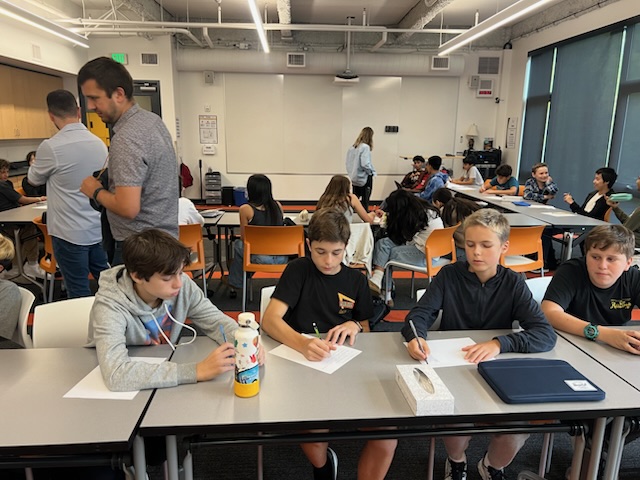
When speaking with colleagues about how they perceive my connection and communication with others in the community, I had a few in-person meetings and asked for some feedback via email. Here are some anecdotes that stuck out to me:
Ginger Ellingson: “You are authentically interested in people’s experiences as teachers and how school works, and you ask questions and listen to the answers and you’re just…committed to the practice of teaching, and so you’re kind of interested in how people do it. And, you know, across disciplines, not, you know, not just within music or the arts, but how, how teaching in general works, I would say.”
Ed Castro: “Well, yeah, there’s the affinity spaces, but there’s also the way you teach your classes where you’re really looking at differentiation, right? So you’re like this kid can’t read music, so how do I get them to participate in music in a meaningful way? Like I’ve seen you do that work.”
Lisa Frystak: – “Your tenor, tone, and just overall willingness to listen during our production meetings…You can take criticism in a way that you don’t immediately get defensive and it becomes more like all of us just working together. For the betterment of the student experience, rather than one person might want versus what another person might want. I can go to you and be like, hey, I’m having this idea right now. What would you do for assessment? Or like, how do you think that this feedback might work? Where I’m trying this new thing and you have a really awesome like pedagogical stance on being able to say, OK. Well, what do you really want to be doing here? I mean the first thing that comes to mind is the whopperburger. [a commercial jingle I wrote for the MS play] I mean like that it that was a testament of me just being able to be like, hey, I have this weird idea. Do you want to try it? And you took it on. And not only did you just be like, yeah, sure. Let’s let’s do something. You went off and like immediately got it done.”
On partnering for the Rock Music Classes – Ed Castro: “You made a point of partnering up with other folks in those spaces and made those spaces really, really fun and workable for the student and their experience.”
On partnering with Chamber choir, Ginger Ellingson: “There’s sectional work and accompaniment work that we cover for each other when we have to be out. When we need different perspectives or questions like what do you think about this option for the students? We ask each other those types of like repertoire questions. When I heard “the wizard and I” down the hallway the other day, just like was like, oh, that sounds like so much fun and invited myself into your class to sing along. So you know, there’s kind of like an open door policy, I think. And then you and Ed collaborate on the rock’n’roll stuff and that’s been effective.”
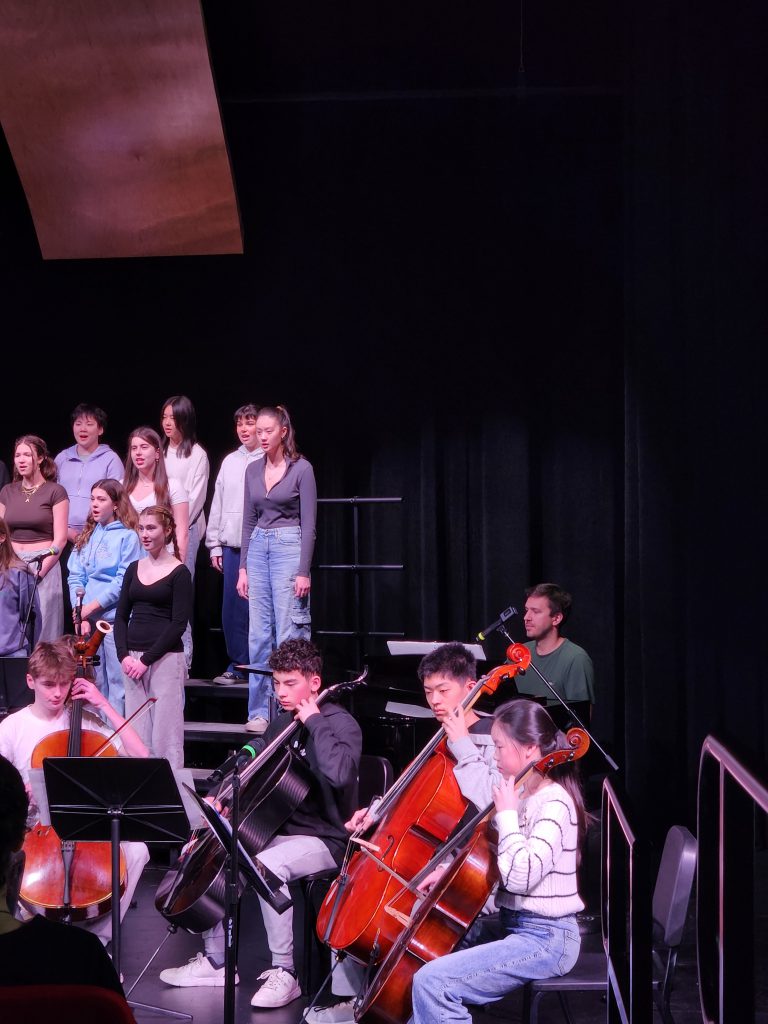
In addition to the world of music at EPS, I also consistently partner with Monica Cowdery, Natalie Abel, Michael Graybeal and Allison Luhrs to make sure everything is synchronized and running smoothly for our 8th grade advisees.
Over the years I’ve been at EPS, some of my favorite things to do in the community are to get involved in silly and/or social events to show school spirit. These include dressing up for spirit days and halloween, participating in social events like happy hours and sports games with faculty, participating in the faculty flash mob at orientation, and coming to EPS sports whenever possible. In addition to being goofy and letting loose at school, I frequently invite colleagues to come see me perform on the weekends at the piano bar I perform at! (Keys on Main)
Ginger: “I mean that it’s a good example of you kind of participating in anything and everything you know is like running from basketball practice to dance practice during our beginning of the year faculty meetings.”
And I mean, you’re participating in the admission preview event this weekend tomorrow, right?
Lisa: “So that and then I see you attend dinners when you’re asked to go to those the after graduation and continuation celebrations like you’re out doing stuff. You’re inviting people to see you do piano.”
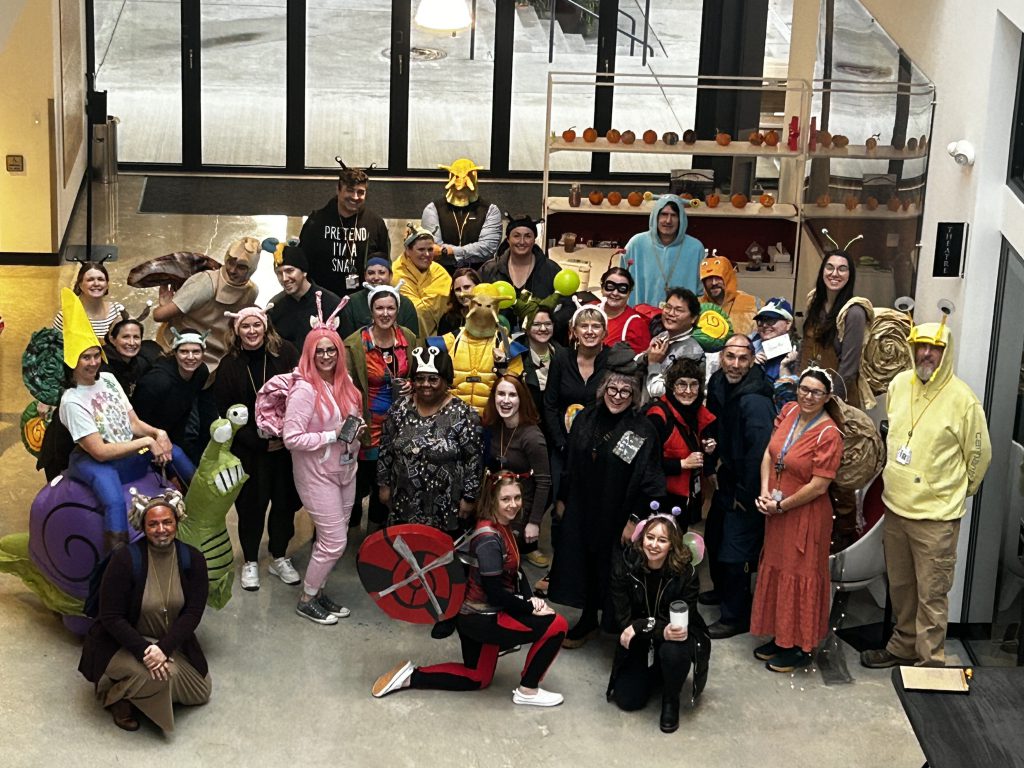
Community Membership
In addition to forming many close friends with the faculty here, I also often act as an ambassador for the school. I am an 8th grade advisor, which involves orientation trips and field trips with the middle schoolers, overnight events, and many games and activities to facilitate bonding between different students. I frequently participate in the faculty Q&A Panel during admissions events, and I am often showing new families the music spaces when they visit. During all the music concerts, I speak to families, introduce our groups & our repertoire and give a bit of the reasoning behind the pedagogical choices we make. I also direct the music for our all-school Musical – Spamalot, High School Musical, Addams Family, and this year, Matilda. I can be seen greeting guests, coming to all performances possible, and communicating with families and students via teamsnap throughout the rehearsal process.
During EBC Week, whether in Nashville, Austria, Mexico City or Sevilla, I help our students and serve as an ambassador for EPS with other organizations and tour guides. In instrumental music classes, I am often communicating with parents about music instrument rentals and all the associated info that comes with finding instruments. With Chamber Choir I am often traveling to Performances & Field Trips – sometimes chaperoning and accompanying on piano at places like Benaroya Hall or McCaw Hall.
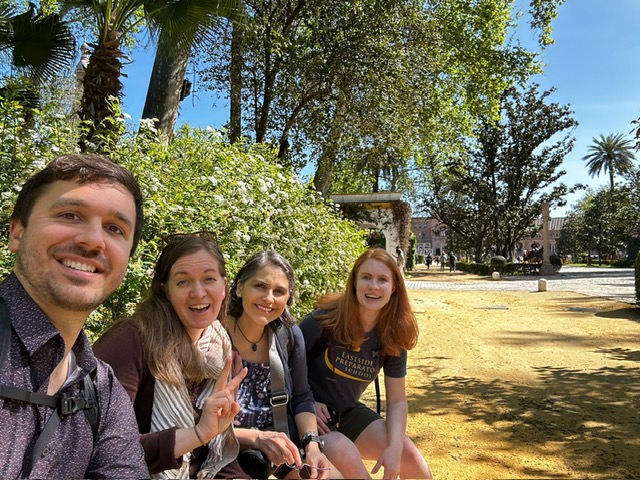
Ed Castro: “So I think that’s it’s…infectious, that for the school events you’re like, ‘Well, I got to be here!’
I can be seen at every music concert, coordinating or spectating Sound Bites on fridays in TALI, assisting with Arts Fest at the end of the school year, and often a few athletic events per year.
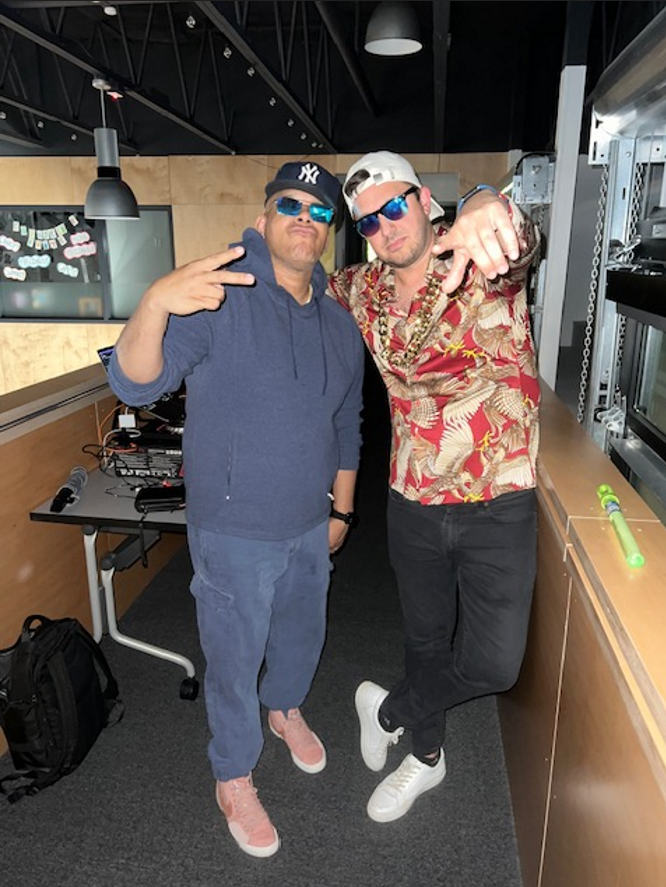
Ginger Ellingson: “You hang out after the concerts and chat with people, which is a really important part of, you know, parents. I think feeling like they know the program and know who their kids are spending time with at school.”
Lisa Frystak: So like think broader and be like, oh yeah, I reached out to this person and I grabbed a coffee with that person, you know, that kind of thing. And I I think that people feel comfortable reaching out to you. I often see you like talking with Javi at breakfast or talking with Spanish folks at lunch. You know, so like I while I feel like you’re not just in the the Arts silo, you branch out where we are not very much like ‘we only sit with the arts people’ and we only talk about art.
Malcolm Yates: “Working with Luke as faculty sponsors of the Young Men’s Masculinity Affinity Group I’ve really gotten to see how deftly he guides students in wrestling with questions around male identity. Luke models a version of masculinity that students can look up to (confidence without toxicity, sensitivity as strength, etc.). Luke is also patient and empathetic with students whose current views and attitudes about masculinity in our culture may not align with his own. Rather than heavy-handedly pushing students towards more openness, Luke hears them out, asks probing questions, and listens with compassion.”
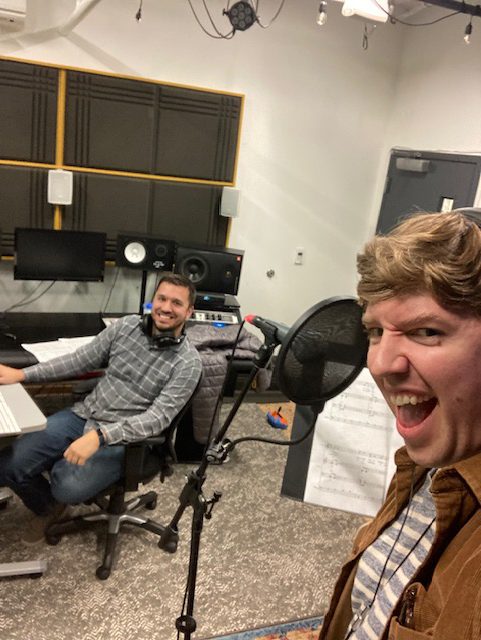
Another way I help try to bring about a sense of community at EPS is by carefully selecting a diverse range of repertoire for all my classes. Every trimester of choir includes a global approach to learning to read music through the folk songs of countries around the world. I am also intently focused on including composers/musicians of color, and women composers in the pop music and classical/modern music realms.
When approaching classical music from the western European art music tradition, especially “sacred” music – we discuss how intertwined government & religion have historically been within that tradition, and how agents of the church and its benefactors were often the ones paying composers for their work, so when studying the written music of the past, especially music with text from the Bible or originally meant for Christian worship, we bring a critical, scholarly eye to it, not a “worshipful” or “religious” one.
The Rock Orchestra & Rock Vocals curriculum has its roots in Black American traditions- blues, & gospel music, which eventually became rock ‘n roll, is inherently a Black American art form and as a class we trace certain elements of the music we study back to these performers and artists and talk about their lives and name that influence when making this type of music. Popular music today would not be at all what it is without the Black innovators of the past!
Lisa: “Yeah, I mean, the diversity piece you’ve done, EPS, rocks concerts, including all kinds of genres with all kinds of artists with that come from all kinds of backgrounds. So like, to me, that is inherently like weaving in the EICL you know. And I think actually like the music department as a whole, does a really lovely job of doing that.”
Another way that I help facilitate a sense of community with fellow faculty and students is just by being an example of a queer adult in a leadership position. Although I am not sure of the full impact that this has, as it doesn’t often come up in conversation with families or students, I feel that it is important to exist as a role model for students who may be unsure of and/or discovering their identity in the LGBTQ community, and also for students who may not be LGBTQ but who might benefit from seeing the community in a slightly different way, perhaps even breaking some of their pre-conceived stereotypes.
Ed Castro: “The way you show up…every day matters, like you’ve not been shy about who you are. You know, like you’ve been gay since the day you showed up, right? And this is a version of being gay, and students need to see that, and students understand that. You know, some folks might be a little more private about that, and that’s totally understandable. You haven’t been. It’s been a point of like, no, I’m no different than anybody else. So you can treat me with respect like any other teacher…and that’s fantastic.”